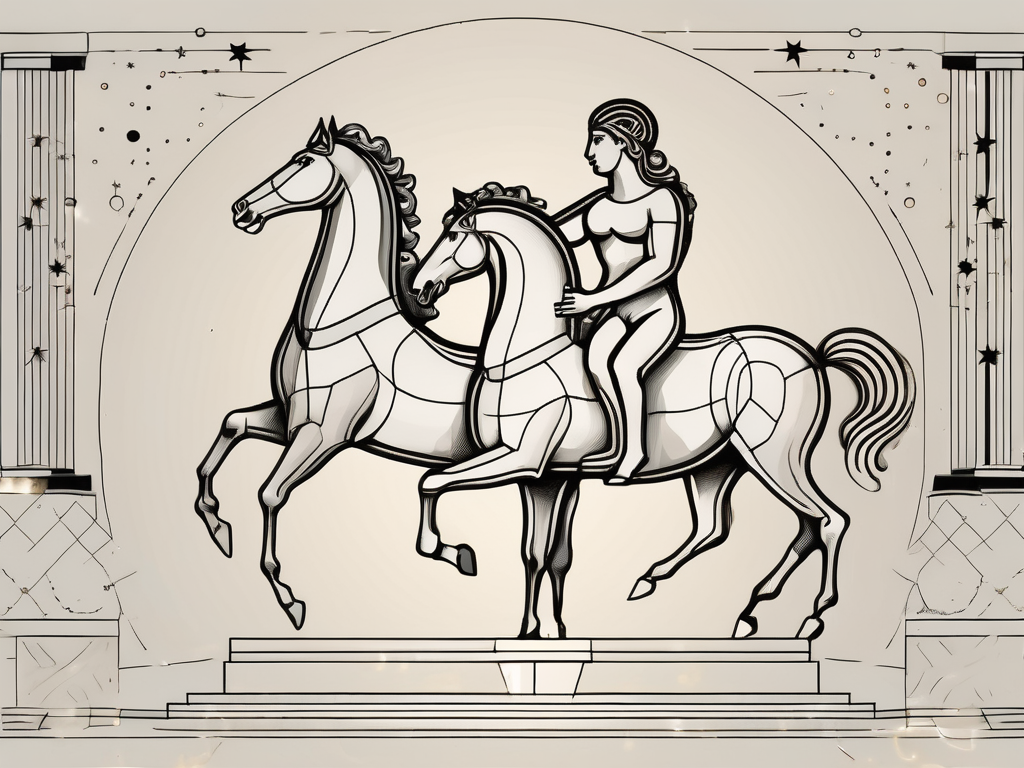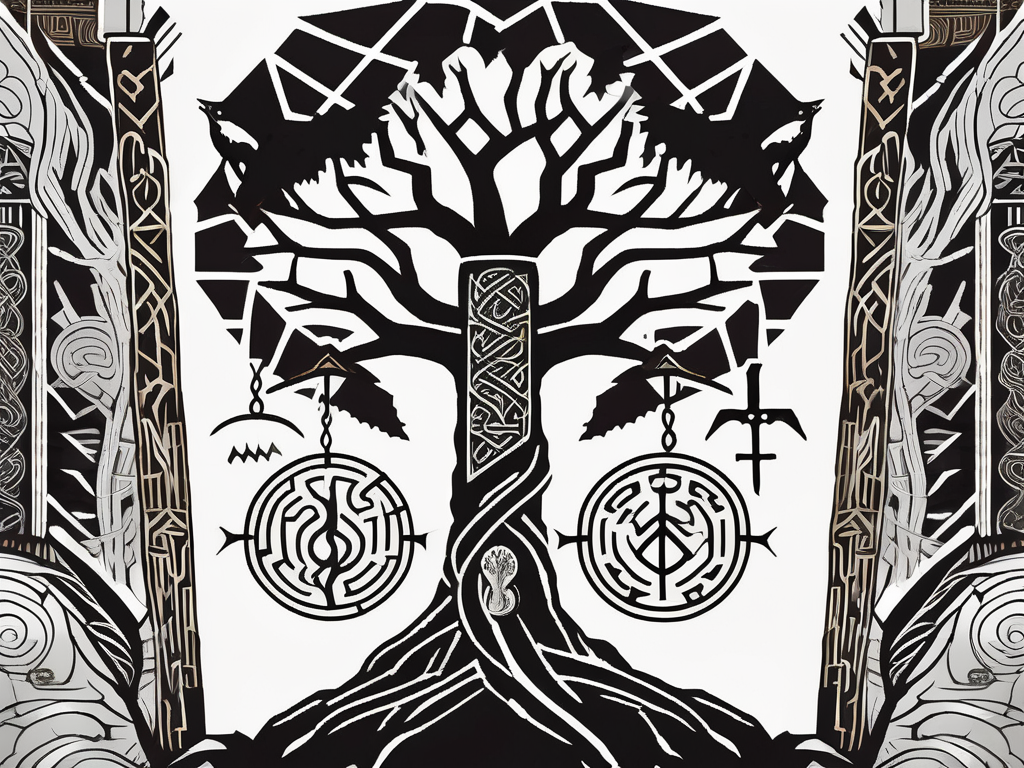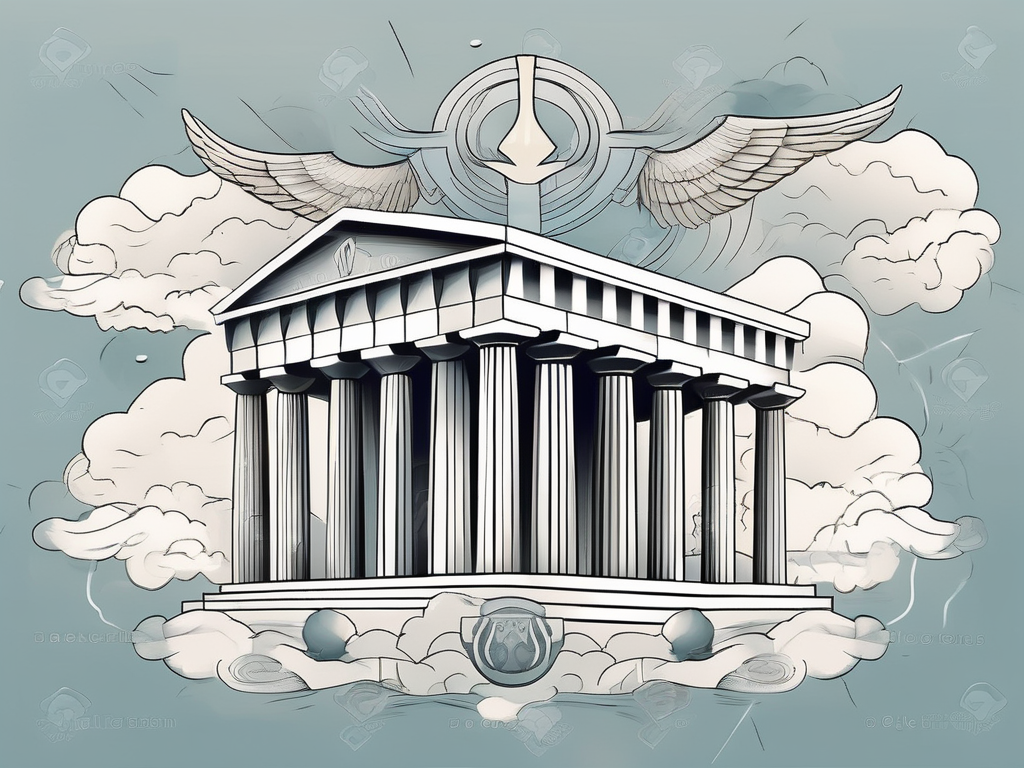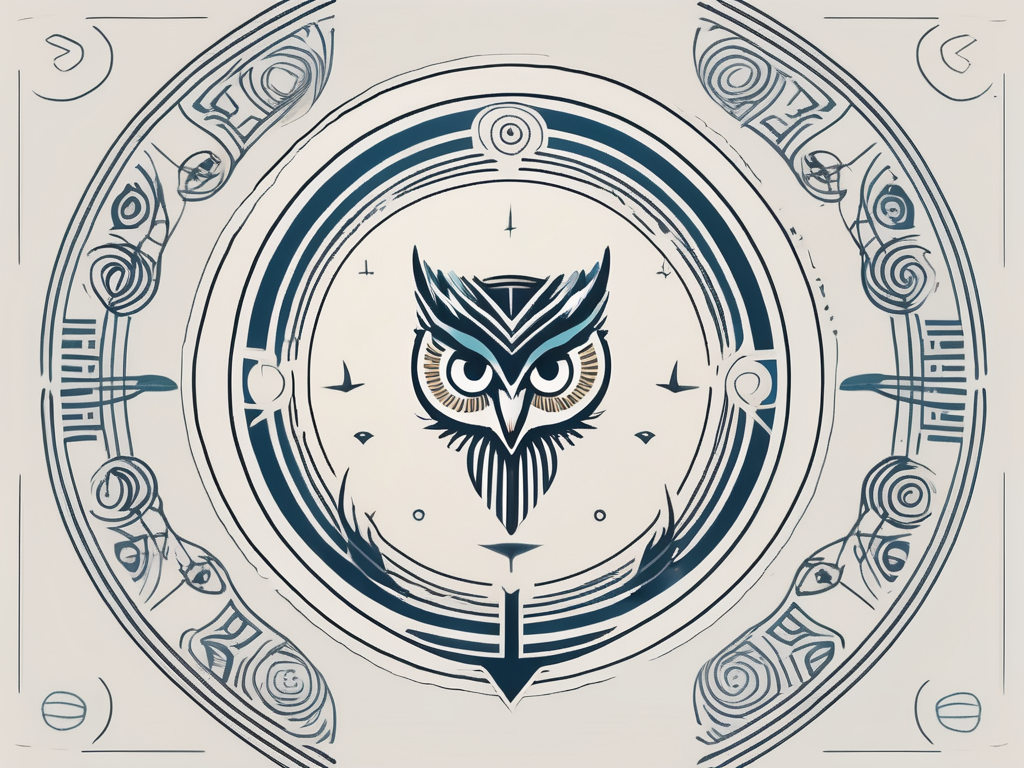Greek mythology is a vast treasure trove of fascinating deities, heroes, and mythical creatures. Among them, Pollux stands out as a truly captivating figure. In this article, we will delve deep into the origins, legends, worship, and cultural influence surrounding the mythical deity Pollux.
Understanding the Role of Pollux in Greek Mythology
Before we embark on a journey through Pollux’s intriguing tales, it’s important to grasp his significance in Greek mythology. Pollux, also known as Polydeuces, was one of the central figures in the stories of the ancient Greeks. As we explore his legends, we will discover the profound impact he had on both mortals and immortals alike.
Legend has it that Pollux was not an ordinary figure in Greek mythology. His birth and parentage were far from ordinary, marking him as a unique and powerful being.
The Birth and Parentage of Pollux
According to legend, Pollux was the son of Zeus, the king of the gods, and Leda, the queen of Sparta. However, his birth was far from ordinary. Leda was seduced by Zeus, who transformed himself into a stunning swan. As a result of this divine union, Leda laid two eggs, from which Pollux and his twin brother Castor were hatched.
This unusual birth marked Pollux as a half-divine being, known as a demigod. His divine heritage imbued him with exceptional strength, courage, and immortality.
But what does it mean to be a demigod? In Greek mythology, demigods were the offspring of a god and a mortal. They possessed extraordinary abilities and were often revered as heroes. Pollux’s demigod status set him apart from ordinary mortals and made him a figure of great importance in the Greek pantheon.
Pollux and His Twin Brother Castor
Pollux was inseparable from his twin brother Castor, and together they became renowned as the Dioscuri, the divine brothers. While Pollux was born from Zeus, Castor was the offspring of Leda and her mortal husband Tyndareus.
The bond between Pollux and Castor was unbreakable, and their unity was a symbol of brotherly love and loyalty. They embarked on many heroic adventures together, which solidified their reputation as legendary figures in Greek mythology.
It is worth noting that while Pollux was immortal, Castor was a mortal. This contrast between the brothers added depth to their relationship and highlighted the unique nature of Pollux’s existence.
Pollux’s Immortality: A Unique Aspect in Greek Mythology
One of the most distinctive elements of Pollux’s character was his immortality. Unlike most mortals, he had the privilege of being eternally young and strong, destined to live forever. This divine gift blessed him with the ability to traverse both the mortal and immortal realms without fear of death.
As we delve into the legends and stories associated with Pollux, we will witness how his immortality played a crucial role in his numerous adventures and his influence on Greek culture.
Furthermore, Pollux’s immortality set him apart from other heroes in Greek mythology. While many heroes were celebrated for their bravery and accomplishments, their mortal nature meant that their stories often ended in tragedy. Pollux, on the other hand, was exempt from such a fate, allowing him to continue his heroic exploits without the fear of mortality.
His eternal youth and strength made him a symbol of hope and inspiration for mortals, who looked up to him as a paragon of virtue and heroism.
As we continue our exploration of Pollux’s tales, we will uncover the impact he had on the lives of both mortals and gods, and how his immortality shaped his destiny.
The Legends and Stories Associated with Pollux
Now that we have explored Pollux’s role in Greek mythology, let us turn our attention to the captivating legends and stories that surround this mythical deity. These tales depict Pollux’s heroism, his encounters with mighty heroes, and his contributions to some of the most significant events in Greek history.
But there is so much more to discover about Pollux and his extraordinary adventures. Let us delve deeper into the fascinating tales that have been passed down through generations.
The Tale of the Golden Fleece
One of the most celebrated adventures involving Pollux was his participation in the quest for the Golden Fleece. Alongside his brother Castor, Pollux joined Jason and the Argonauts on their perilous voyage to retrieve the mythical fleece.
As the ship sailed through treacherous waters, Pollux’s keen eyes scanned the horizon, ever watchful for any signs of danger. His strength and courage were unmatched, and his presence brought a sense of reassurance to the entire crew.
Amidst encounters with terrifying monsters, such as the dreaded Hydra and the ferocious Harpies, Pollux fearlessly fought alongside his fellow heroes. His divine powers, inherited from his father Zeus, allowed him to unleash lightning bolts upon their adversaries, ensuring their survival.
But it was not just his physical prowess that made Pollux a true hero. His unwavering loyalty and unwavering determination to achieve the impossible inspired the Argonauts to push through the most challenging obstacles. It was Pollux who reminded them that their quest was not just for personal gain but for the greater good of all Greece.
Pollux and the Argonauts
Aside from his involvement in the Golden Fleece quest, Pollux also played a vital role in protecting the Argonauts during their numerous trials. With his strength and divine powers, he provided unwavering support to his fellow heroes, ensuring their survival in the face of adversity.
During their journey, the Argonauts faced the wrath of Poseidon, god of the sea, who unleashed violent storms upon them. It was Pollux who stood at the helm of the ship, his hands firmly gripping the wheel, guiding them through the treacherous waves. His unwavering determination and connection to the sea allowed him to navigate the ship with unparalleled skill.
But it was not just his physical strength that made Pollux an invaluable asset to the crew. His wisdom and strategic thinking proved vital in their encounters with mythical creatures, such as the fearsome Scylla and Charybdis. With his guidance, the Argonauts were able to outmaneuver these deadly foes and continue their journey.
Pollux’s unwavering devotion and fearless nature won the hearts of his comrades, establishing him as a crucial ally and a true hero among gods and mortals.
The Spartan War and the Role of Pollux
Among the many legendary wars of ancient Greece, the Spartan War holds a prominent place. Pollux, being the son of the Spartan queen Leda, played a pivotal role in shaping the outcome of this epic conflict.
As the war raged on, Pollux’s presence on the battlefield was a sight to behold. His mastery in battle, combined with his immortality, granted him an immense advantage over his enemies. With each swing of his sword, he struck fear into the hearts of those who dared to oppose him.
But it was not just his physical prowess that made Pollux a formidable warrior. His leadership prowess and his unwavering dedication to his homeland and its people cemented his status as a revered figure in Spartan history.
Pollux fought alongside the Spartan warriors, inspiring them to push beyond their limits and never surrender. His unwavering loyalty to his comrades and his unyielding determination to protect his city-state fueled the Spartan army’s resolve.
As the war reached its climax, it was Pollux’s strategic brilliance that turned the tide in favor of the Spartans. With his guidance, they devised a daring plan that led to a decisive victory, forever etching Pollux’s name in the annals of Spartan history.
And so, the legends and stories of Pollux continue to captivate us, reminding us of the extraordinary feats achieved by this mythical deity. His heroism, bravery, and unwavering dedication have left an indelible mark on Greek mythology, ensuring that his name will be remembered for eternity.
The Cult of Pollux: Worship and Rituals
Beyond Pollux’s legendary exploits, his influence extended to the realm of worship and rituals. The worship of Pollux and his brother Castor, collectively known as the Dioscuri, was widespread in ancient Greece, particularly in the city of Sparta.
Temples and Shrines Dedicated to Pollux
Throughout Greece, magnificent temples and shrines were erected to honor the divine brothers. These sacred sites were places of worship and pilgrimage for believers who sought the protection and favor of the Dioscuri.
These temples and shrines, adorned with magnificent sculptures and intricate artwork, stood as testaments to the unwavering devotion and gratitude of the Greek people towards Pollux and his brother.
The Dioscuri: The Cult of Castor and Pollux
The worship of Castor and Pollux as a divine duo, known as the Dioscuri, had a significant impact on Greek religious practices. Their cult emphasized the virtues of brotherhood, loyalty, and bravery, inspiring individuals to embody these ideals in their daily lives.
Festivals and Celebrations in Honor of Pollux
In addition to temples and shrines, various festivals and celebrations were organized to pay homage to Pollux. These joyous occasions involved lavish processions, grand sacrifices, and athletic contests that exemplified strength and prowess, echoing the divine attributes of Pollux himself.
These festivities not only celebrated the deity but also fostered a sense of community and unity amongst the Greek people, reinforcing the values that Pollux personified.
The Influence of Pollux in Art and Literature
As with many revered figures in Greek mythology, Pollux’s presence extended beyond the realm of religion and worship. His captivating tales and divine nature inspired countless artists and authors throughout the ages.
Depictions of Pollux in Ancient Greek Art
Ancient Greek art celebrated Pollux’s legendary exploits and his divine nature through stunning sculptures, intricate pottery, and detailed paintings. These masterpieces not only immortalized his heroism but also served as a source of inspiration and admiration for future generations.
References to Pollux in Classical Literature
Classical literature, too, paid homage to the mythical deity Pollux. Renowned authors such as Homer and Euripides wove his compelling tales into their timeless works, incorporating his heroism, immortality, and brotherly bond into the fabric of their narratives.
Pollux in Modern Pop Culture
Even in modern times, the influence of Pollux can be seen in popular culture. From movies and television series to novels and video games, his character continues to fascinate and captivate audiences around the world.
Pollux’s enduring presence in various forms of media serves as a testament to his universal appeal and the timeless allure of Greek mythology itself.
Conclusion
As we conclude our exploration of the mythical deity Pollux, we find ourselves immersed in a world of gods, heroes, and awe-inspiring legends. From his extraordinary birth and immortal nature to his epic adventures and cultural influence, Pollux represents the very essence of Greek mythology.
Through his stories, we not only glimpse the captivating world of ancient Greece but also gain insights into the timeless values that we still cherish today. The mythical deity Pollux stands as a testament to the enduring power of mythology to inspire, captivate, and unite people across time and generations.












